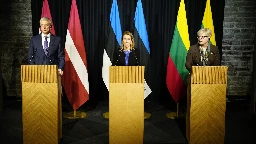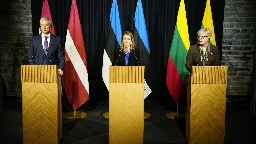Baltic countries notify Russia and Belarus they will exit the Moscow-controlled electricity grid
Baltic countries notify Russia and Belarus they will exit the Moscow-controlled electricity grid

apnews.com
Baltic countries notify Russia and Belarus they will exit the Moscow-controlled electricity grid

The electricity grid operators of the three Baltic countries on Tuesday officially notified Russia and Belarus that they will exit a 2001 agreement that has kept Estonia, Latvia and Lithuania connected to an electricity transmission system controlled by Moscow.

